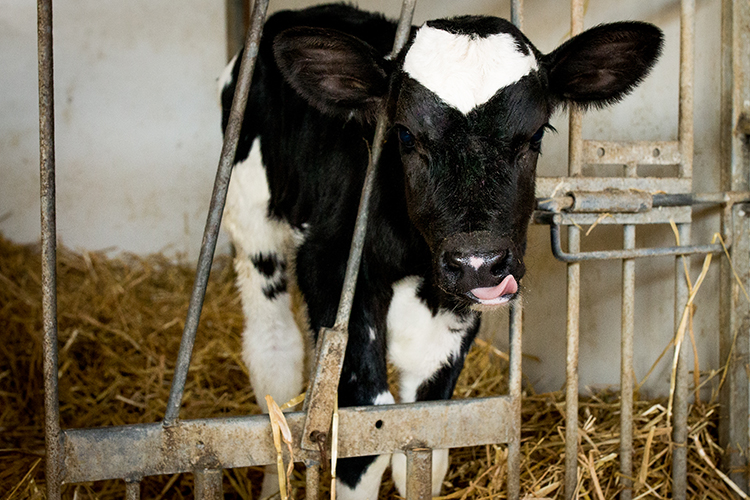
Newborn calves are an everyday occurrence on our family’s farm. Each one has its own unique pedigree, birth story, personality, and set of quirks. Of all the calves I help care for, the premature ones hold a very sweet spot in my heart. In fact, the calf that started my own herd was a premature Holstein heifer calf. She went on to be a healthy milk cow (despite being a full foot shorter than the rest of the herd) and had multiple offspring of her own, including a set of twins. I’ll share more about her and my personal herd another day.
Today, I want to shine a light on premature calves and the extra care, love, and bit of luck they require.
While we’re fortunate to only have premature calves born on rare occasion, it’s something all livestock farmers are bound to experience. On October 17, a small, premature Holstein heifer calf was born into our herd, with her mother’s due date not being until November 12. I was in the middle of morning milking on the day this calf was born, and my dad brought her right into the parlor for her to warm up and dry off since it was the first colder day of the year here in Iowa.
With some extra effort to lift her head and a helping hand to keep her standing upright, she drank about one-fourth of her first bottle. In this little calf’s case, every sip of milk was a step in the right direction. It took several days before she consumed an entire bottle of milk at a time. Afterall, that’s a lot of milk for such a little stomach to handle. Each feeding took up to half an hour since she took such small drinks and had some breaks throughout her meal.
Now, a few weeks old, she is doing well and starting to gain the spunk and normalcy of the rest of our calves. Every time she meets me at the gate for her bottle is a victory in my book. Since premature calves have weakened immune systems and tend to be more prone to illness, we’ll continue monitoring her especially close as she grows.
Overall, premature calves often take a lot more work, nurturing, hoping, and praying, but all the extra time and energy is worth it to see them thriving with the rest of the calves.
Some people might have given up on an animal with these odds stacked against them, but farmers have special hearts — plus, an extra dose of persistence and grit — that rise to the challenge of nurturing such beings. Farmers toil day-in and -out because we believe every animal deserves the ultimate chance. We’ll do anything and everything we can for the health and well-being of our livestock. Period. It doesn’t matter the time of day, how cold it is, if we have family visiting, or something important to get to, everything else takes a back seat when an animal is in need.

The author dairy farms with her parents and brother near Hawkeye, Iowa. The family milks approximately 300 head of grade Holstein cows at Windsor Valley Dairy LLC — split half and half between a double-eight parallel milking parlor and two robotic milking units. In the spring of 2020, Molly decided to take a leap and fully embrace her love for the industry by returning full time to her family’s dairy.







